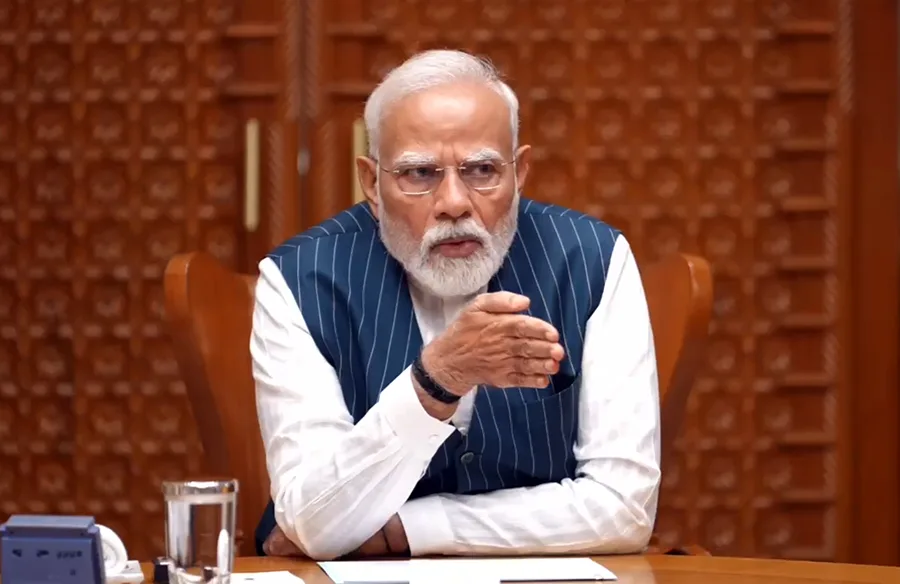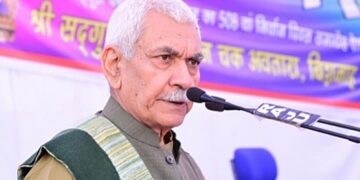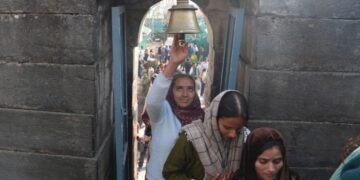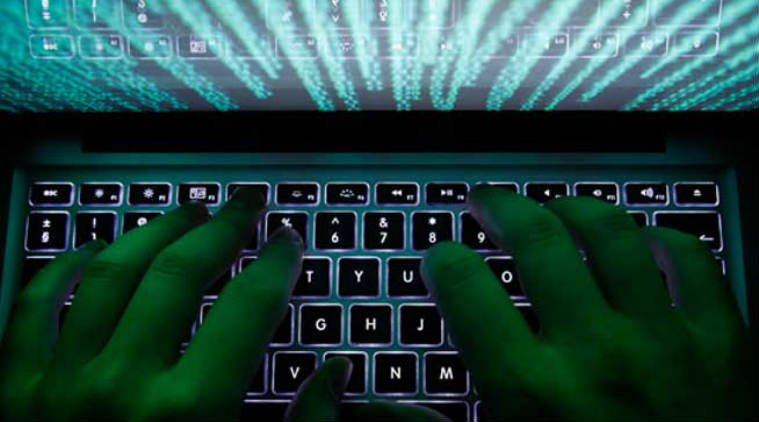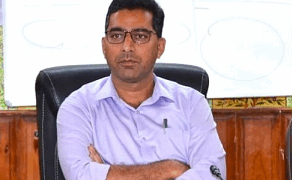Jammu: Highlighting his government’s commitment to improving healthcare accessibility across Jammu and Kashmir, Chief Minister Omar Abdullah on Friday emphasized the need to improve the handling of emergency cases and capacity at various Government Medical Colleges to ease the burden on major hospitals.
Abdullah also stressed the importance of ensuring that doctors serve beyond urban centres.
“We need to augment and improve the emergency handling capability and capacity in new GMCs so that the pressure on GMC Jammu and GMC Srinagar is automatically reduced. Similarly, we must ensure that our doctors do not just practice in cities. I know it’s not a popular thing to say, but rural areas also deserve proper healthcare access,” he said.
The Chief Minister was addressing JK MediCon-2025, the first-ever national conference-cum-workshop, at Government Medical College (GMC) here. The event was organized by the J&K Medical Council in collaboration with the Student Research Development Council (SRDC).
“Our challenge is to make healthcare more easily accessible. The excessive pressure on GMC Jammu’s emergency services stems from the fact that healthcare in peripheral areas is not of the required standard. This forces people to flood into cities,” he said.
According to an official press release, Abdullah emphasized that the solution lies in improving healthcare infrastructure in rural areas.
“The way to reduce this pressure is not just by expanding our infrastructure in Jammu but by strengthening facilities in peripheral areas. There was a time when we only had GMC Jammu and GMC Srinagar. Now, we have GMCs at the district level,” he said.
Speaking about MediCon-2025, the chief minister acknowledged its importance in fostering debates and discussions on key medical issues.
“There are all sorts of debates surrounding the topics that MediCon can address. The good thing is that students are involved through SRDC,” he said.
Abdullah highlighted that the participants will earn 11 credits through MediCon, which will encourage greater engagement and enthusiasm.
“I hope the futuristic advancements in medical science will be part of our discussions — how much technology is beneficial, how much human contact should be replaced by machines. While some tasks may be better performed by AI, there are things that only human beings can do,” he said.
Touching on the ethical dimensions of modern medical trends, Abdullah raised concerns about the intersection of medicine and profit-driven healthcare.
“Where do we draw the ethical line in medicine? Is there such a thing as too much ethics? Does the pursuit of profit in medical care conflict with ethical responsibilities? Should hospitals treat patients as a means of revenue generation?” he asked.
The chief minister also noted the pressure on doctors working in corporate hospitals where their performance is measured not by the number of patients they treat but by the revenue they generate.
Delving into the future of robotic surgery and Artificial Intelligence (AI) in medicine, Abdullah highlighted both the potential and concerns surrounding these advancements.
“One trend that seems to be catching on is the use of robotic surgery. Principal GMC Jammu (Ashutosh Gupta) mentioned that AI could one day take over medical procedures. Honestly, I cannot imagine a scarier prospect than entrusting my life entirely to a machine,” the chief minister said.
“At the end of the day, there is immense value in human contact and that’s where doctors — who literally do God’s work — play an irreplaceable role,” he added.
The chief minister also acknowledged the growth plans for GMC Jammu and expressed his intent to contribute.
“Principal GMC Jammu presented several ideas for GMC Jammu’s future growth. My colleagues and I will ensure at least one of those proposals is implemented so that I too can have a foundation stone here and not feel left out in future presentations,” he said in a lighter vein.
He also underscored the significance of MediCon-2025, noting that it is the first of its kind in J&K and possibly in the country, where a state or regional medical council has organized such an event.
“This event brings together the best minds to share ideas, best practices, and research advances while discussing emerging trends in medicine,” he said.
Earlier, Principal GMC Jammu gave a detailed presentation on the college’s growth and future plans.
In a separate function, CM distributed orders to newly appointed panchayat secretaries in the Rural Development Department here, urging them to ensure government funds are utilized without corruption.
According to an official press release, as many as 20 newly appointed panchayat secretaries — 10 each from Kashmir and Jammu divisions — received their appointment orders from the chief minister at an event organized at Sher-e-Kashmir University of Agricultural Sciences & Technology (SKUAST) in Jammu.
Congratulating the appointees, Abdullah reminded them of their crucial role in bridging the gap between the government and people.
“The appointment process was transparent though not without its challenges. Despite difficulties, we ensured the process was completed fairly,” the chief minister said.
“Today, you receive your appointment orders not as a favor from anyone, but as a result of your hard work and merit,” he added.
Recalling the historical evolution of the Panchayati Raj system in Jammu and Kashmir, Abdullah acknowledged the contributions of past governments, particularly former Chief Minister Sheikh Muhammad Abdullah, in strengthening grassroots governance.
“The Panchayati Raj system was first introduced under the Jammu and Kashmir Village Panchayat Act. Over time, panchayat system has evolved, with every government playing its part in strengthening it,” he noted.
Speaking about the significance of panchayat elections, the chief minister pointed out the high-level of public participation in local governance.
“We have observed that while voter turnout in the parliamentary elections is relatively low, it increases in the assembly elections. However, panchayat elections see the highest level of engagement because these institutions are closest to people,” he said.
Abdullah urged the newly appointed panchayat secretaries to ensure that government funds allocated for rural development are utilized effectively and without corruption.
“The schemes – whether centrally sponsored or J&K sponsored – must be implemented with honesty, ensuring maximum public benefit. You will face pressures and attempts to influence decisions, but your duty is to uphold justice and serve the poor,” he said.
He reminded them that while governments change, the responsibility of public servants remains constant.
“Don’t worry about political shifts, your focus should be on serving people with dedication,” he said, highlighting the importance of honesty, transparency and dedication in public service.
The chief minister expressed hope that he would continue to interact with the appointees in the years ahead, pledging his government’s support as they carry out their duties.
“This will not be our last meeting. Today we are here, but tomorrow we will meet in the field, working together to improve governance. I look forward to visiting your areas and seeing the impact of your work firsthand,” he said.
Disallowing Shab-e-Baraat prayers at Jama Masjid ‘unfortunate’: CM
Chief Minister Omar Abdullah has described as “unfortunate” the security establishment’s decision to seal Srinagar’s historic Jama Masjid on Shab-e-Baraat, one of the holiest nights in the Islamic calendar that was observed across Kashmir.
Police on Thursday placed Mirwaiz Umar Farooq, who was scheduled to deliver a sermon at Jama Masjid on Shab-e-Baraat, under house arrest. The people present on the premises were asked to leave and the mosque management was informed that there would be no night prayers.
“It is very unfortunate that the security establishment has taken the decision to seal the historic Jamia Masjid, Srinagar, on one of the holiest nights in the Islamic calendar — Shab-e-Baraat,” Abdullah said in a post on X.
“This decision betrays a lack in confidence in the people and a lack of confidence in the law-and-order machinery that calm won’t prevail without extreme measures. The people of Srinagar deserved better,” he added.
Elsewhere, thousands of faithful thronged mosques and shrines to observe Shab-e-Baraat, with the Hazratbal shrine hosting the largest gathering on Thursday night.
The faithful visited the graves of their loved ones and prayed for them.
CM holds pre-budget consultation with public representatives from Rajouri, Poonch
Chief Minister Omar Abdullah continued his ongoing pre-budget consultations Friday with the public representatives from Poonch and Rajouri districts at the Civil Secretariat here, an official press release informed.
It said the discussions were attended by Deputy Chief Minister Surinder Kumar Choudhary and Minister Javed Ahmad Rana, who represented their respective assembly constituencies. Chairpersons of District Development Councils and Members of the Legislative Assembly from the twin districts of Rajouri and Poonch who participated, both in person and through virtual mode.
Addressing the participants, the Chief Minister reiterated that the purpose of these consultations was to gain firsthand insight into the priorities and aspirations of the people through their elected representatives.
“When we undertake new projects, it is our duty and responsibility to ensure that ongoing projects are completed with as much priority as new ones. Every project belongs to the people, and all ongoing works need to be completed on time,” the Chief Minister said.
He assured that the issues and priorities raised by the representatives had been duly noted and would be considered for inclusion in the upcoming budget.
“You are the primary stakeholders—you meet people daily and understand their most pressing concerns. Our aim is to involve you in planning and development so that the voices of the people find a place in our governance,” he said.
The Chief Minister emphasized the crucial role of elected representatives in grassroots governance, stating that their feedback and inputs were vital in ensuring effective administration.
“Nobody understands the people and their issues better than you. We want to take Jammu and Kashmir to new heights of development and progress,” he added.
During the meeting, the Deputy Commissioners of Rajouri and Poonch presented district-wise updates on capex works that would be prioritized in the upcoming budget session of the Jammu and Kashmir Assembly.
On the occasion, Deputy Chief Minister Surinder Kumar Choudhary, who represents the Nowshera assembly segment, highlighted several key issues in his constituency, including issue of shortage of doctors and paramedical staff, drinking water supply challenges, mobile network issues, bridges, road upgrades, and the four-laning of the Rajouri-Poonch Road beyond Akhnoor.
He also emphasized the need for tourism development in the region.
Similarly, Minister Javed Ahmad Rana, representing the Mendhar assembly segment, raised concerns related to drinking water supply, identification of new water sources, electricity, tourism development, employment and education.
Other MLAs from the respective constituencies also presented their demands and issues, covering a broad range of sectors, including tourism, agriculture, horticulture and urban development.



